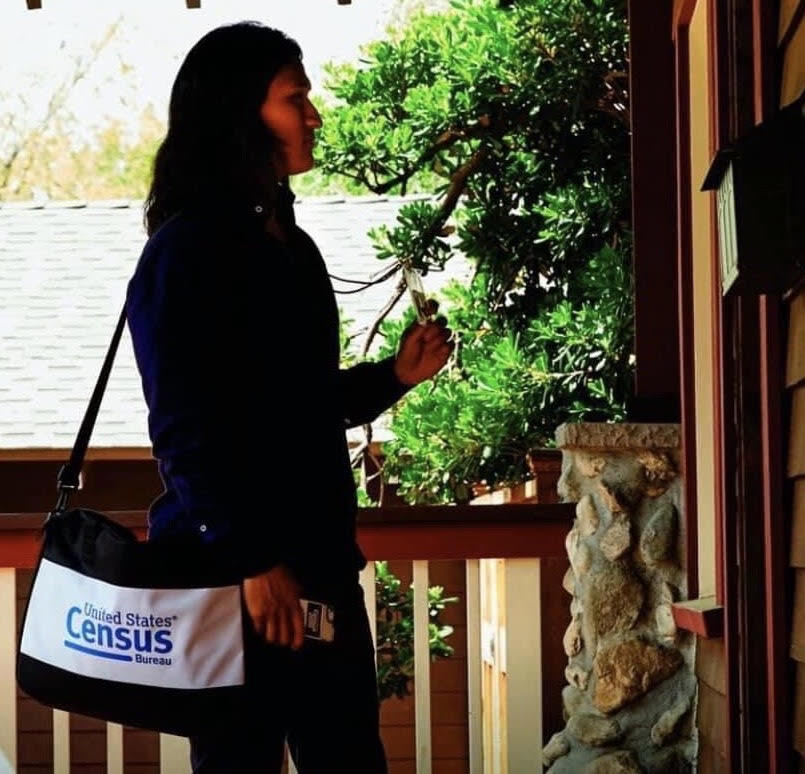
- Details
- By Native News Online Staff
WINDOW ROCK, Ariz. — High numbers of COVID-19 cases on the Navajo Nation have severely slowed the response to the 2020 Census on the largest American Indian reservation in the United States.
As of Sunday, the self-response rate was at 18.2 percent from the Navajo Nation in comparison to the national self-response rate of 64.9 percent.
To bring awareness to the problem, Navajo Nation officials signed a proclamation recognizing the month of September 2020 as “Navajo Nation Census Month” to encourage the Navajo people to participate in the 2020 Census to ensure a complete count of all citizens on the reservation.
“The 2020 Census Count is a prime opportunity to improve the future of our communities for generations to come. The Navajo people’s participation and response will shape how billions of dollars in federal funds are distributed each year for tribal programs and grants for the next 10 years,” Navajo Nation President Jonathan Nez said in a statement.
Navajo Nation officials are also working closely with Census Area Office Manager Arbin Mitchell to reach as many Navajo elders as possible, especially those residing in rural areas. The activities are designed to fully inform them and to provide guidance to ensure they are counted in the census process.
Navajo Nation’s low, double-digit response rates to the Census mirror what’s going on at some other reservations across Indian Country. As of Monday, the Crow Nation in Mont. reported a response rate of 14.4 percent, while South Dakota’s Rosebud Indian Reservation — home to Sicangu Lakota and the Rosebud Sioux Tribe — reported a response rate of 19.5 percent.
In Arizona, the Tohono O’odham Nation’s response rate was 17.6 percent and San Carlos Apache Indian Reservation sits at 12.6 percent.
Some reservations have reported single-digit response rates, including Minnesota’s Red Lake Indian Reservation, which had a response rate of 6.9 percent.
There have been some positive reports of Census activity in Indian Country. Last week, there was a report from New Mexico that more than half of residents of the Pueblos of Cochiti, Kewa and Jemez have responded to the 2020 Census. These response rates were higher than the state’s response rate.
Still, many tribal leaders and advocates are concerned that Indian Country will be significantly undercounted in the 2020 Census, an issue that could have an impact on funding for tribes over the next decade.
While the COVID-19 pandemic has created obstacles for tribal leaders to ensure proper counting, the federal government put up another hurdle earlier this month when it announced it was ending all field counting for the 2020 Census on Sept. 30, one month sooner than previously announced.
One non-profit executive in Montana told the Great Falls Tribune that the deadline change was a “bump in the road,” that would cause lost momentum and valuable time, but also warned of the potential downside for tribes in the 2020 Census.
"It's looking to be a historic undercount of tribes and tribal people not only in Montana but across the country,” Ta'jin Perez, program manager for Billings, Mont.-based Western Native Voice said. “Statistically, we are rolling a boulder uphill.”
To those who have yet to fill out the 2020 Census and want to self-respond, the link can be accessed here: https://2020census.gov.
Related: Getting Past the Apathy and Fear of the Census
Related; Census Bureau Slashing a Month Off Counting is a Critical, Damaging Blow to Indian Country
More Stories Like This
Native News Weekly (August 25, 2024): D.C. BriefsUS Presidents in Their Own Words Concerning American Indians
Star-Studded Livestream to Boost Native News Online’s Year-End Campaign
Monday Morning (December 8, 2025): Articles You May Have Missed This Past Weekend
Native News Weekly (December 7, 2025): D.C. Briefs
Help us defend tribal sovereignty.
At Native News Online, our mission is rooted in telling the stories that strengthen sovereignty and uplift Indigenous voices — not just at year’s end, but every single day.
Because of your generosity last year, we were able to keep our reporters on the ground in tribal communities, at national gatherings and in the halls of Congress — covering the issues that matter most to Indian Country: sovereignty, culture, education, health and economic opportunity.
That support sustained us through a tough year in 2025. Now, as we look to the year ahead, we need your help right now to ensure warrior journalism remains strong — reporting that defends tribal sovereignty, amplifies Native truth, and holds power accountable.
 The stakes couldn't be higher. Your support keeps Native voices heard, Native stories told and Native sovereignty defended.
The stakes couldn't be higher. Your support keeps Native voices heard, Native stories told and Native sovereignty defended.
Stand with Warrior Journalism today.
Levi Rickert (Potawatomi), Editor & Publisher

